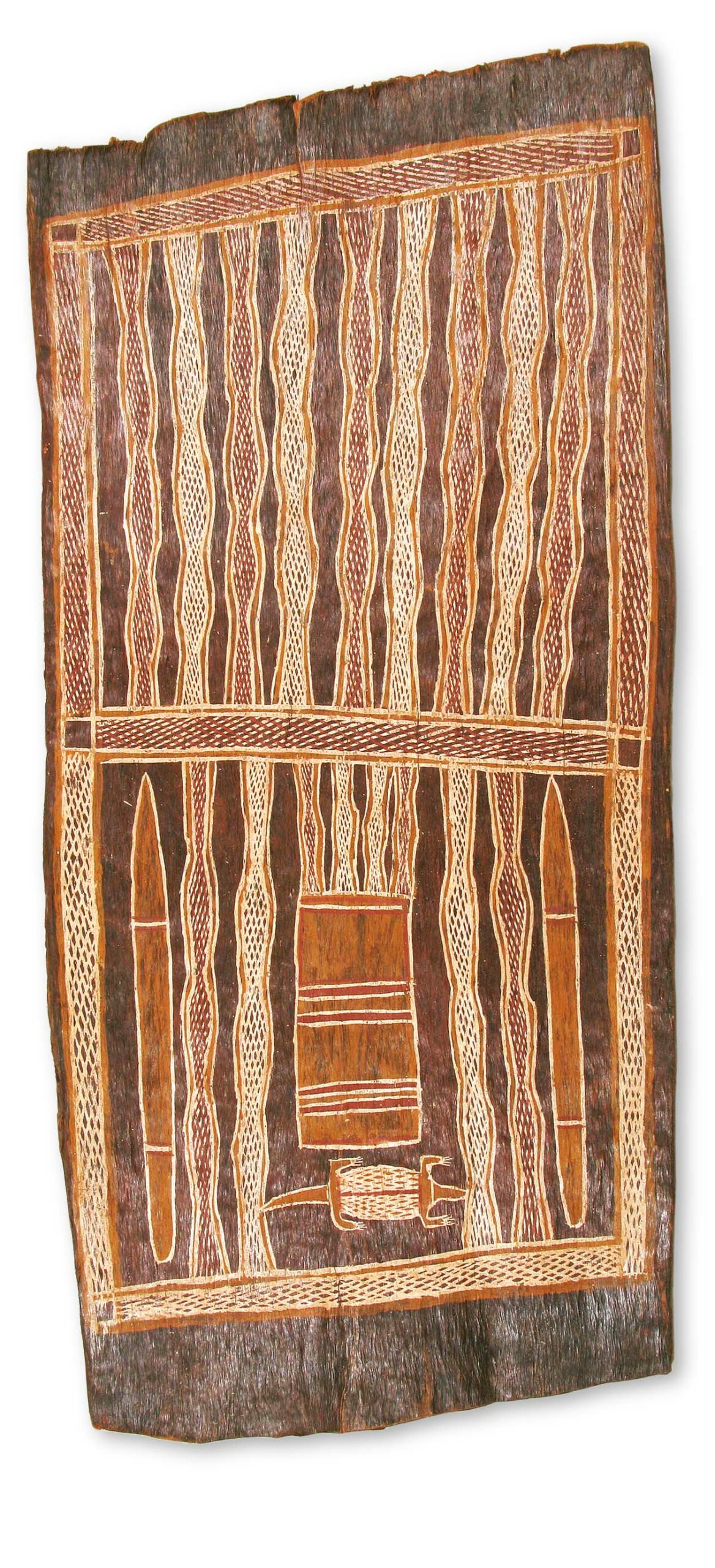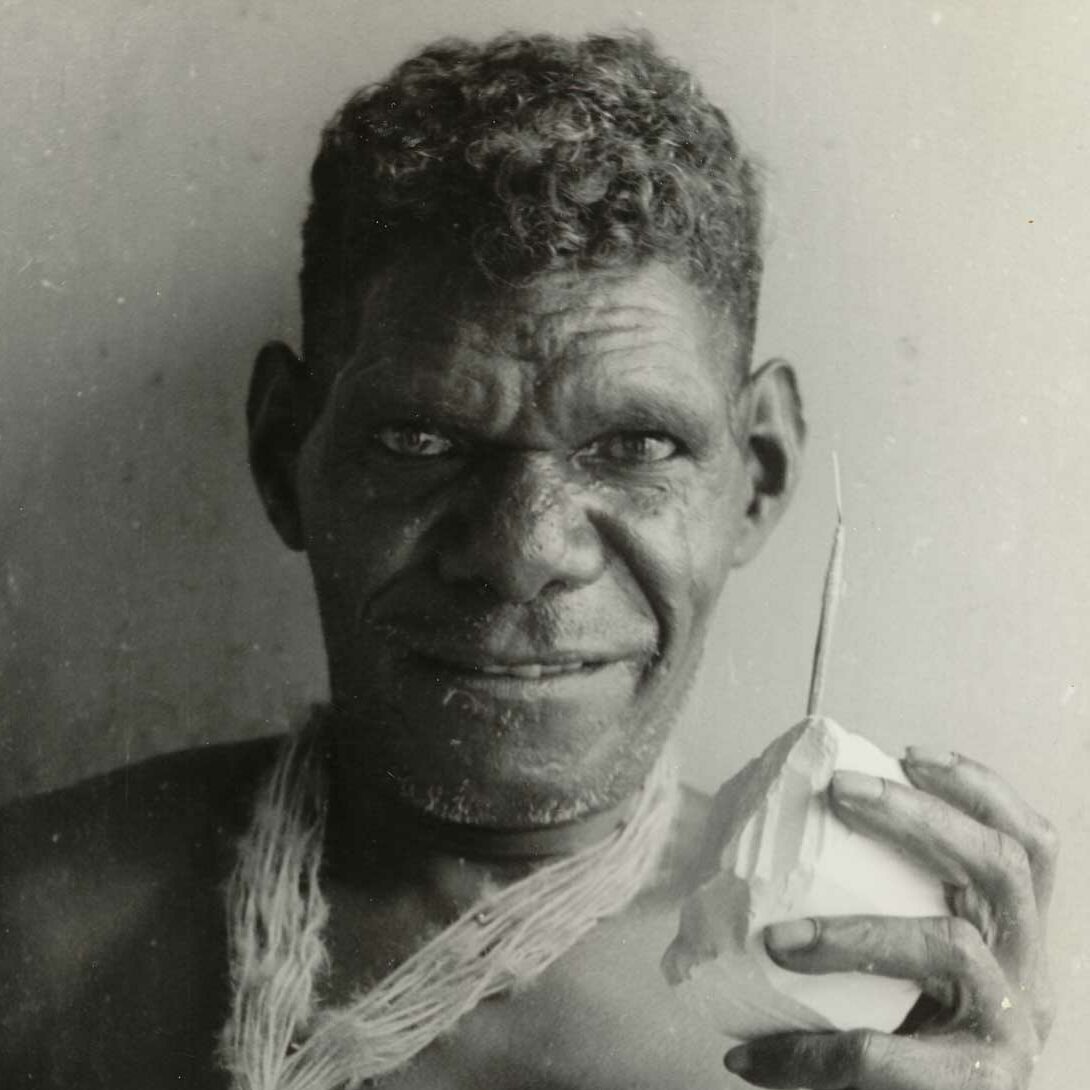
"Narritjin has painted the Gaḻaŋarr (yellow rock) that is burning, so we cannot see it in the distance. That is the shore of a place called Bonhuwa where Wirrili went and dug with his digging sticks. Gaḻaŋarr is the rock itself: Gaḻaŋarr, the yellow ochre. The place where we get the Gaḻaŋarr is called Gurruŋa or Gurruŋawuy. That is where we still go to get yellow ochre. And I call these digging sticks gaṉiny. And when Baḻaŋarrtji stuck his digging stick in the ground, it made a hole. And a goanna named Djarrawuywuy or Gamunuŋbi slipped over and went inside. He went inside black and came out yellow from the Gaḻaŋarr. And the hawk, Gurrututu, was flying around and saw the pieces of yellow ochre on the ground. He picked one up and flew away with that yellow ochre to the lands of the Gupapuyŋu clan. We sing Gaḻaŋarr together, Gupapuyŋu and Gumatj clans."
– YÄLPI YUNUPIŊU
Additional Information
Decade
1948
Medium
Natural pigments on eucalyptus bark
Dimensions (IN)
38 1/4 x 16 3/4
Dimensions (CM)
97 x 42.5
Credit
National Museum of Natural History, Smithsonian Institution. E387456.
Narrative
Gumatj
The Gumatj are a large clan, with homeland communities at Gunyuŋarra, Birany’birany, Dhanaya, Bawaka, Maṯamaṯa...
Songline
Wirrili | The Yellow Ochre Ancestor
The saltwater painting starts on the horizon and goes toward Gurruŋawuy, where we get yellow...
Location
1940s
The onset of World War II spurs the formation of the Northern Territory Special Reconnaissance...
About The Artist(s)

Clan
Maŋgalili
Artist Dates
c.1916-1981
Alternative Names
Naridjin, Naritjin, Narridjin, Ngaradjin
Narritjin Maymuru
Narritjin Maymuru was one of the most significant figures in the development of the painting movement at Yirrkala. The driving force behind the Yirrkala Church Panels, he actively encouraged art making as a means of economic development, which would lead to the foundation of the Yirrkala Art Center in 1976. Along with Mawalan Marika, Narritjin was one of the first men to teach his daughters to paint. In 1978, he was awarded a Creative Arts Fellowship from the Australian National University.
Collections Represented
Art Gallery of New South Wales
Art Gallery of Western Australia
Art Gallery of South Australia
Kluge-Ruhe Aboriginal Art Collection of the University of Virginia

